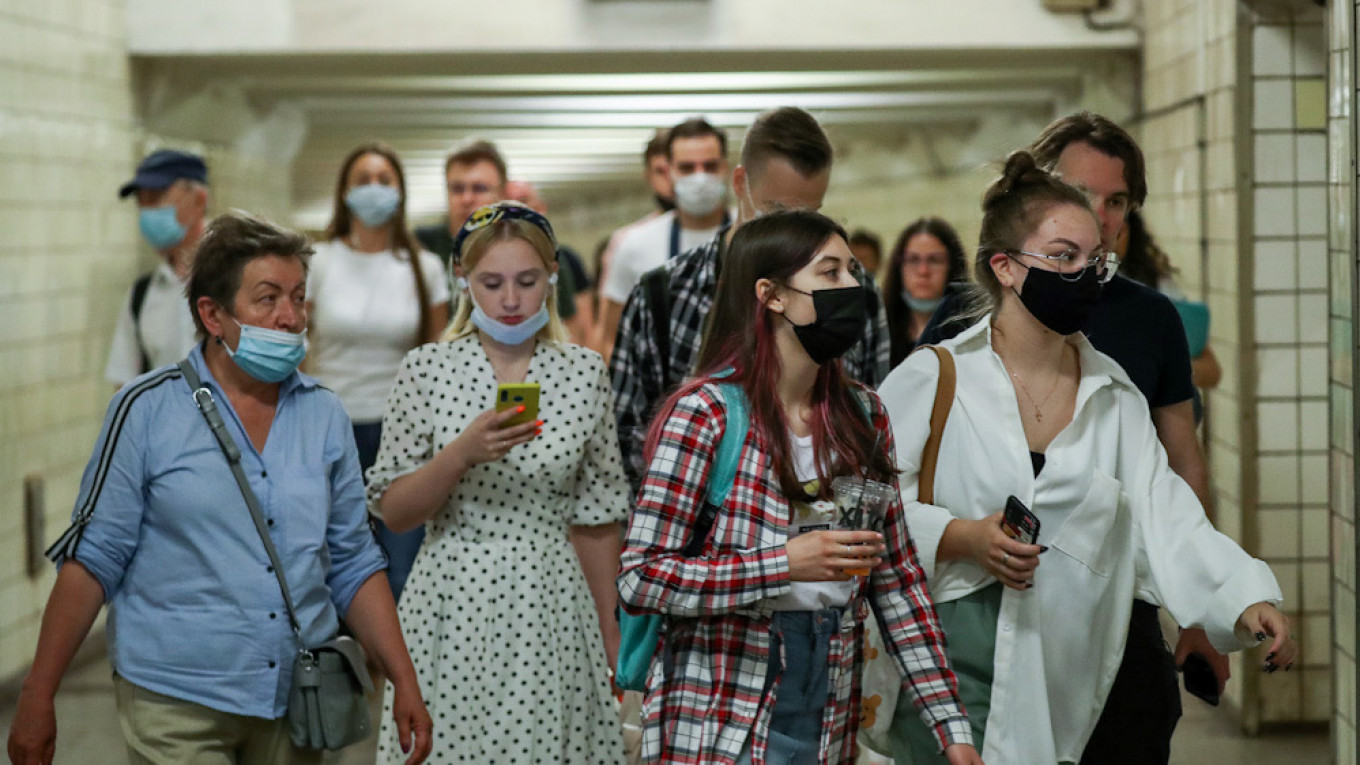Moscow reported its highest-ever number of new coronavirus infections Friday, as the city’s health authorities warned “new, aggressive mutations” of the virus were spreading at an alarming pace.
Russia’s national coronavirus task force confirmed 9,056 new Covid-19 cases in Moscow over the last 24 hours — a 46% surge on the previous day.
Mayor Sergei Sobyanin moved Friday to extend a limited number of restrictions in the capital in an attempt to stop the spread of the virus. Among other measures, Sobyanin ordered the Euro 2020 fan park to close, cancelled mass events with over 1,000 participants, and extended an 11 p.m. curfew for bars and restaurants.
The previous highest number of cases reported in Moscow was 8,203 on Dec. 24, during the midst of the country’s second wave of the virus.
Moscow has started to rapidly reprofile hospitals to increase the number of beds available to coronavirus patients. The number of designated Covid-19 beds is now almost back at levels seen during the first peak of hospitalizations last spring.
“It's most likely we are facing new, more aggressive variants which spread more quickly,” said Sobyanin during a video conference with government officials battling the pandemic.
“It's tripling, there's an enormous dynamic that we have not seen during the previous waves.”
Later Friday, Sobyanin said that the Delta variant first detected in India accounted for nearly 90% of new infections.
Alongside new restrictions on mass events, Sobyanin ended a non-working week in the capital, which had seen workers sent on a week-long paid vacation in an attempt to stop the spread of coronavirus among the capital’s working population, who health authorities said accounted for the bulk of infections.
A mandatory vaccination campaign for service sector workers has also been announced, and Deputy Mayor Anastasia Rakova said Friday there had been a fourfold increase in the number of vaccination appointments scheduled. Some 1.8 million Moscow residents have been vaccinated with at least one dose of a coronavirus vaccine, Sobyanin said Thursday — around 15% of the population.
But leading health figures have warned that the impact of accelerated vaccinations will take weeks to have any impact on the spread of infections, and Moscow is still far from hitting the kind of vaccination levels needed to approach herd immunity.
Nationwide Russia reported 17,262 new coronavirus cases Friday — a 23% increase and the highest daily figure since Feb. 1.
A Message from The Moscow Times:
Dear readers,
We are facing unprecedented challenges. Russia's Prosecutor General's Office has designated The Moscow Times as an "undesirable" organization, criminalizing our work and putting our staff at risk of prosecution. This follows our earlier unjust labeling as a "foreign agent."
These actions are direct attempts to silence independent journalism in Russia. The authorities claim our work "discredits the decisions of the Russian leadership." We see things differently: we strive to provide accurate, unbiased reporting on Russia.
We, the journalists of The Moscow Times, refuse to be silenced. But to continue our work, we need your help.
Your support, no matter how small, makes a world of difference. If you can, please support us monthly starting from just $2. It's quick to set up, and every contribution makes a significant impact.
By supporting The Moscow Times, you're defending open, independent journalism in the face of repression. Thank you for standing with us.
Remind me later.






